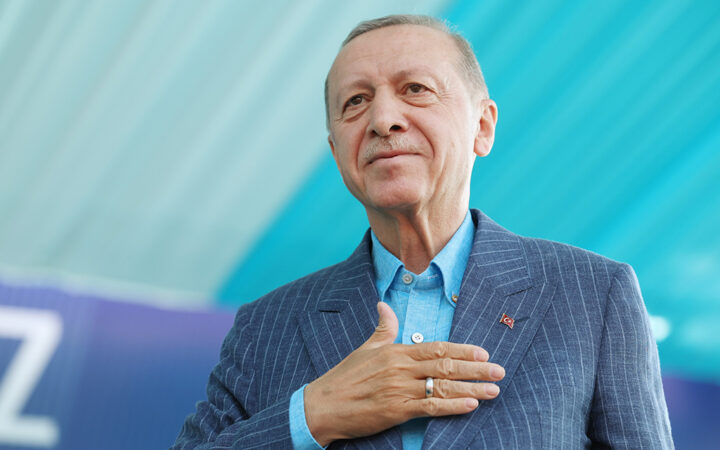The suppression of the lira stems from Erdogan’s core idea that economic growth can be hampered by raising interest rates.
Turkish President Recep Tayyip Erdogan has retained his seat after winning the past presidential election in the country and while this naturally calls for celebration, the outlook of the Lira is showcasing the industry’s perception of the victory. According to CNBC, the Turkish Lira was trading as low as 20.44 against the United States Dollar by 10 am local time.
The revelation that Erdogan will continue in power with his supposedly flawed economic and monetary policies has unsettled the economy and the reflection is being shown in the outlook of the lira. The country’s fiat has been receiving a lot of bearish projections from industry experts, many of whom do not expect any positive turnaround for the asset in the near future.
“We have a pretty pessimistic outlook on the Turkish Lira as a result of Erdogan retaining office after the election,” Wells Fargo’s Emerging Markets Economist and FX Strategist Brendan McKenna told CNBC’s “Squawk Box Asia”.
McKenna projected that by the end of this current quarter, the Lira can drop as low as 23 against the dollar. In the long term, he foresees mild growth as he believes the currency can retest 25 against USD by the first quarter of 2024.
The suppression of the lira stems from Erdogan’s core idea that economic growth can be hampered by raising interest rates. Rather than employ this route to curb inflation, the president believes increasing things like exports can prove to be more magical in addressing some of the core economic woes the country is facing.
Many countries and advanced economies are also seeing massive inflationary growth, however, the difference is in the approach to tackling this menace. The United States for instance has hiked its interest rates as many as 10 times since last year, and the impact is being felt at the inflationary level.
Turkish Lira and Currency Reserve Swap Lines
The fact that many world currencies have been recording significant devaluations in the past few years appears to be easing off the banter surrounding the Turkish Lira amongst critics. Nonetheless, the rate of devaluation in the currency is calling for relatively more drastic measures by the appropriate authorities.
One of these measures is the move by the Turkish Central Bank to secure currency reserve swap lines with countries in the Middle East and China. According to McKenna, if the apex bank “can continue to draw on those lines and possibly extend and enhance those reserve currency lines, maybe there’s some support in the central bank FX intervention”.
The new tenure is just shaping up and over the course of the next few months, there will be an indication of whether a change will come as it concerns the policies that can better place the economy and the Turkish Lira on a positive path for growth.

Benjamin Godfrey is a blockchain enthusiast and journalists who relish writing about the real life applications of blockchain technology and innovations to drive general acceptance and worldwide integration of the emerging technology. His desires to educate people about cryptocurrencies inspires his contributions to renowned blockchain based media and sites. Benjamin Godfrey is a lover of sports and agriculture.








